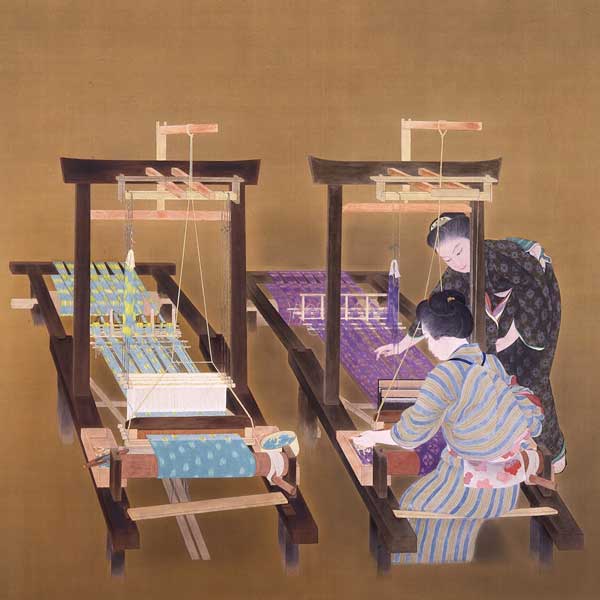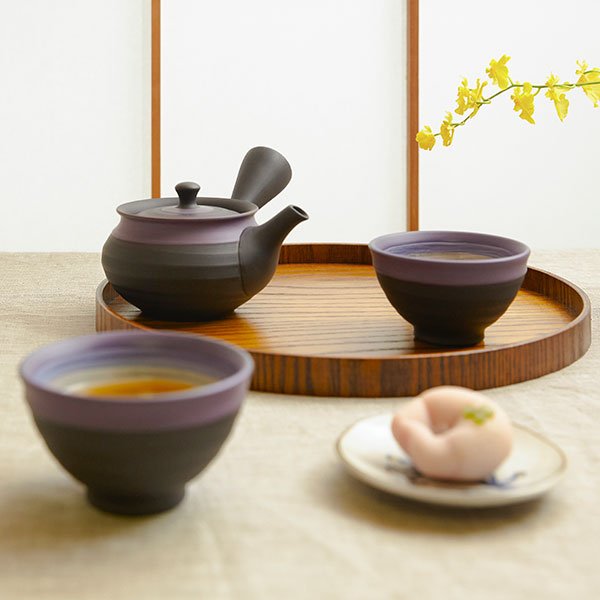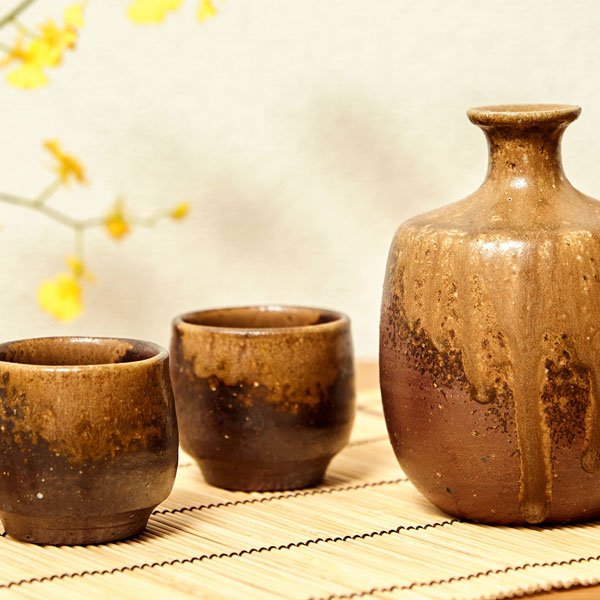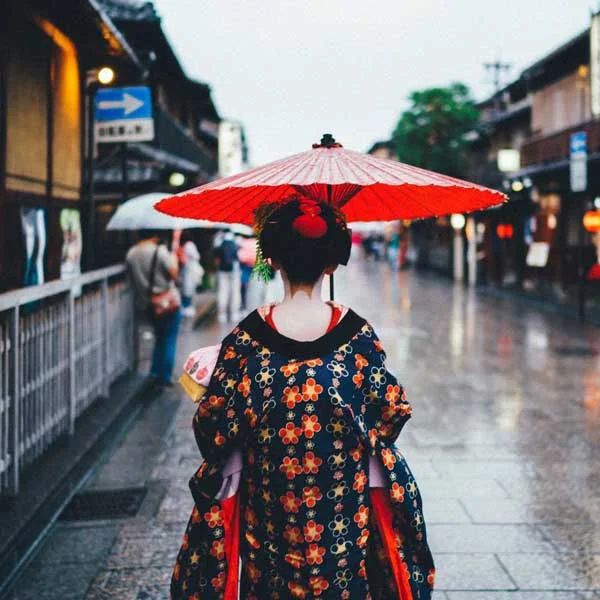15 Top Picks for Where to Buy Fabrics in Tokyo
by Tabitha Wilders | TRAVEL
© Kokei Kobayashi, Weaving, 1926, National Museum of Modern Art, Tokyo
Besides the rolls of unique and exquisite fabric that can found at the famous Nippori Textile town, there are dozens of haberdasheries in and around Tokyo. In this article, we have compiled a list of 15 stores and markets where you can find not only fabric, but second-hand kimono, beautiful Japanese embroidery patterns and unique handicraft kits.
You may already have a project in mind for your textiles but if you’re looking for some inspiration, or are curious about traditional uses for Japanese fabric, check out our guides to Tenugui and Noren Curtains. If you’re interested in purchasing authentic Japanese kimono or yukata, you can also check out our Japan Objects Store and have it delivered straight to your door!
1. Okadaya Shinjuku
© DozoDomo / Flickr Creative Commons
Shinjuku may be known as an entertainment hub but it is also home to many of Tokyo’s low-cost textile stores. Okadaya has a fine selection of pre-cut and discounted fabrics among its regular wares. It is an excellent shopping spot for those who enjoy a little guidance in their practice, as there are helpful tips and themed projects located across the store. Aside from currently trending patterns, they also sell more traditional fabric for kimono.
Address: 3-23-17 Shinjuku, Tokyo (see map)
Website: okadaya.co.jp
Hours: 11am to 8:30pm.
Transport: 5 minute walk from Shinjuku station.
2. Tokyu Hands
© jun560 / Flickr Creative Commons
From school supplies to the latest beauty trends, Tokyu Hands is a must-visit. The brand has multiple locations throughout Japan but we recommend the Shibuya store which is convenient to access and well stocked with various goods. In particular, the arts and crafts selection is very extensive. The fabrics available are high-quality and simplistic, creating the perfect foundation for a project. There is also a wide range of sewing tools and accessories.
For more unique Japanese craft supplies, check out these Fabulous Places to Buy Washi Paper.
Address: 12-18 Udagawacho, Shibuya-ku, Tokyo (see map)
Website: tokyu-hands.co.jp
Hours: 10am to 9pm
Transport: 8 minute walk from Shibuya station.
3. Momenya Makino
© Capture1 / Flickr Creative Commons
Momenya Makino is a store almost bursting at the brim with fabric. Located in Kitazawa, it is a nice escape from the hustle and bustle of the inner-city. Regardless of your Japanese skills, the owners of this shop are very helpful and friendly to even the most novice tailor. The store carries a variety of Japanese textiles in multiple styles such as linen, gauze, embroidery fabric, foreign prints and seasonal prints.
Address: 2-24-7 Kitazawa, Setagaya, Tokyo (see map)
Website: momenyamakino.com
Hours: 11am to 7pm
Transport: 3 minute walk from Shimo-Kitazawa Station.
4. Bunka Gakuen University
© NelC / Flickr Creative Commons
Bunka Gakuen University is a distinguished fashion school in Shinjuku, home to some of the most creative minds in Tokyo. The school shop allows designers to bring their creations to life and is open to members of the public. It sells mannequins, Japanese and imported fabrics, rare threads, and fabric bins at an affordable price. You can visit the shop in person or use their online shop.
Address: 3-22-1 Yoyogi, Shibuya, Tokyo (see map)
Website: bunka-koubai.com
Hours: 10:30am to 4:30pm Monday to Friday (Please check their website for confirmation as they are sometimes closed during school holidays).
Transport: 11 minute walk from Yoyogi Station.
5. Yuzawaya
© Yuzawaya, Natural rolls
Yuzawaya is a popular arts and crafts store that has been in business since 1995. In fact, their online store offers the largest number of fabrics and handicrafts in the industry in Japan, including kimono and yukata off-cuts which have great potential to be upcycled.
Fabric can be purchased from lengths as short as 50cm and from there you can choose your desired length in 10cm increments. They have multiple branches across Japan and 14 stores in Tokyo, including stores near large stations such as Shinjuku, Ikebukuro and Ueno. Yuzawaya’s biggest store is in Kamata, which is divided into three buildings. Namely “building 5” sell all the items necessary to make a costume.
Yuzawaya regularly hold handicraft workshops in Japanese, for example, how to knit for beginners and crafts for children.
Address: 8-23-5 Nishikamata, Ota City, Tokyo, 144-0051 (see map)
Website: yuzawaya.co.jp
Hours: 10am to 8pm
Transport: 1 minute walk from Kamata station.
6. Nippori Tomato
© Nippori Tomato
Located in Nippori Textile Town and renowned among dressmakers and tourists alike, Tomato has earned its reputation as a haberdashery that has it all. Fabric here can be purchased at a wholesale price and is recommended for those who want to purchase fabric in large quantities.
If you are looking for a bargain, there is an 110 yen corner in the main building where fabric is sold at 110 yen per meter. If you’re in search for smaller items on the other hand, such as beads, ribbons, thread and needles, those can be found in the Notion Hall.
Tomato has five floors in total so, if there is a fabric you’re looking for, you’ll most likely find it here - though you may need to do some digging!
Address: 6-44-6 Higashinippori, Arakawa, Tokyo (see map)
Website: nippori-tomato-onlineshop.com
Hours: 11am to 5:30pm, closed on Sundays.
Transport: 6 minute walk from Nippori station.
7. Craft Heart Tokai (Kinshicho)
© Fujikyu
A haberdashery that has been in business for over 60 years. Located in the west of Tokyo, Craft Heart Tokai sell a variety of fabric and handicrafts, and are continuously updating their stock according to their local client base and the season. They have 40,000 items on sale, 60% of which are original to the company.
Address: ArcaKit 6F, Kinshi 2-2-1, Sumida City, Tokyo, 130-0013 (see map)
Website: fujikyu-corp.co.jp
Hours: 10am to 9pm
Transport: 8 minute walk from Kinshichō station.
8. Hobbyra Hobbyre
© Hobbyra Hobbyre, Alpaca Float
Hobbyra Hobbyre was originally established in 1974 and quickly became renowned for their beautiful fabrics. Although they mostly import fabrics from overseas, namely European fabrics, they also specialize in sashiko, a traditional type of Japanese embroidery that dates back to the Edo period. Sashiko uses multiple layers of fabric which are embroidered and sewn together. It not only creates a beautiful pattern but it reinforces the fabric to make it stronger and warmer. Sashiko is used to make anything from quilts to handkerchiefs.
Hobbyra Hobbyre offer a lot of original, unique handicraft kits, namely sashiko, and sell distinctively Japanese embroidery patterns for Japanese national holidays which would make a novel gift or souvenir for any sewing enthusiast. There are a total of 10 stores in Tokyo and below we’ve included the details for the store in Ginza which can be accessed easily from central Tokyo.
Address: 1F, Ginza 5-9-5, Chuo City, Tokyo, 104-0061 (see map)
Website: hobbyra-hobbyre.com
Hours: 10:30am to 8pm
Transport: 4 minute walk from Ginza station.
Markets and Stores that Sell Second Hand Kimono:
9. Japan Objects Store
Vintage Kimono, available at Japan Objects Store
Explore the elegance of vintage kimono at Japan Objects Store, where heritage and style converge. Our collection features exquisite vintage kimono for both men and women, alongside artful vintage obi and a selection of Japanese heritage textiles. Delve into the beauty of traditional crafts with our handcrafted futons, zabuton cushions, and noren curtains, each piece echoing the skill of Japanese artisans.
Proudly offering authentic craftsmanship worldwide, we ensure your piece of Japanese culture arrives at your doorstep with complimentary shipping. Discover the timeless beauty of Japan with us.
Website: shop.japanobjects.com
10. Machida Tenmagu Shrine's Antique Fair
Held every month, this antique market fair has approximately 100 stalls, selling an arrange of old Japanese toys, decorations and kimono. You can purchase a second hand kimono here from just 800 yen and an obi from just 500 yen. It’s a great place to find a bargain. However, please note that in the case of bad weather, it may be cancelled.
Address: 1-21-5 Haramachida, Machida, Tokyo, 194-0013 (see map)
Website: kanagawa-antique-market.net
When: 1st day of every month (except January and November)
Hours: 7am to 3pm
Transport: 5 minute walk from Machida station (JR line).
11. Setagaya Boro-ichi Market
© おむこさん志望 / Creative Commons, Setagaya Boro-ichi Market
This market has a long history dating back to the Azuchi-Momoyama period. At that time, the area was except from market tax and so it drew in many vendors. Although now that is not the case, the market is still very popular due to its long history, its festival-like atmosphere and bargains.
The market is held every year but for only four days - once in January on the 15th and 16th and again in December, on the 15th and 16th. Approximately 200,000 people attend per day so it can get quite busy but, here, you’ll find second hand kimonos and obis, and if you don’t mind a stained kimono, they go as low as 300 yen!
Address: Boroichi Dori, 1-chome Setagaya, Setagaya-ku, Tokyo (see map)
Website: city.setagaya.lg.jp
When: 15th and 16th of January and December
Hours: 9am to 8pm
Transport: 3 minute walk from Setagaya station
12. Kimono Recycle Shop in Nakano Broadway Basement
© Miyoshiya, Kimono recycle store
In the basement of Nakano Broadway, you’ll find the kimono recycle store that has been drawing attention on TikTok and Instagram for its affordable prices. The store has been recycling kimonos since 1994 and holds a huge sale every month (though sale dates are not publicly known).
Typically items are priced according to the color of the hanger they are displayed on. Black hangers, the cheapest, start at just 500 yen and the most expensive, pink hangers, are 11,000 yen.
Address: B1 Nakano Broadway, 5-52-15 Nakano City, Tokyo, 164-0001 (see map)
Website: miyoshiya.com
Hours: 10am to 8pm
Transport: 5 minute walk from Nakano station
13. Ohi Racecourse Fleamarket
© Tokyo Recycle, Flea market
This market takes place almost every weekend and it is Japan's largest flea market! There are over 350 participating stalls and entry is free. There is also a food corner which is great for taking breaks in-between browsing. Among the 350 stalls, you’ll often find second hand kimonos and obis. However, please note that it may be cancelled if it rains.
Address: 2-1 Katsushima, Shinagawa City, Tokyo, 140-0012 (see map)
Website: antique-leaves.com
When: Almost every weekend (please check their website for dates)
Hours: 9am to 2:30pm
Transport: 5 minute walk from Oikeibajo-Mae station
14. Asakusa Kirakuya
© Asakusa Kirakuya, Second hand kimono store
A popular second hand kimono and yukata store located in Asakusa. They have two floors with a wide range to choose from. Everything on the second floor is just 1,100 yen so you can definitely grab a bargain here.
Address: MoriyaWORLD Building 1F, Asakusa, 1−22−3, Taito City, Tokyo, 111-0032 (see map)
Website: mfjkirakuyaasakusa.stores.jp
Hours: 10am to 6pm
Transport: 5 minute walk from Asakusa station
15. Kawagoe Antique Market
© Naritasan Kawagoe Betsuin, Kawagoe Antique Market
Located at Naritasen Kawagoe Betsuin Temple, this market is held on the 28th of every month. There are approximately 100 vendors of which many sell fabrics such as kimono. As the market specialises in antiques you may also find another treasure or two. The market is close to Koedo, little Tokyo, which may also be of interest if you are in the area. Be sure to arrive early for this market though as it finishes at 2pm.
Address: Kubomachi, 9-2, Kawagoe, Saitama, 350-0055 (see map)
Website: kawagoe-naritasan.or.jp
When: 28th every month
Hours: 6am to 2pm
Transport: 10 minute bus ride from Kawagoe station
What kind of fabric are you looking for and what do you hope to make? We’d love to hear from you in the comments.













TRAVEL | March 15, 2024